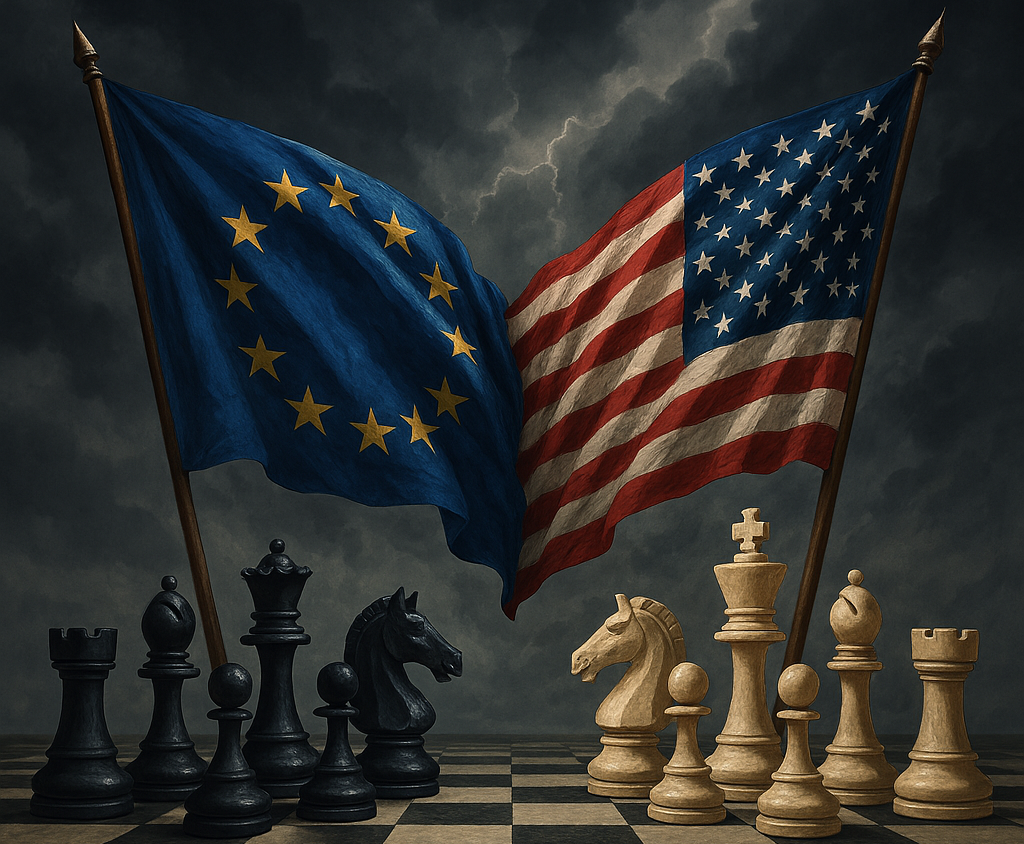

Voting is in the pipeline to decide the fate of US imports into the US. In an effort to determine whether the countermeasures to the United States steel and aluminium tariffs are going to turn into reality, each EU member is set to vote on April 09, announced a senior EU official.

This image is created with the assistance of AI tool for referential purposes only
The Commission’s proposal of counter-tariffing big tech companies such as Elon Musk’s social network X and search engine giant Google, as well as major financial institutions like J.P. Morgan and Bank of America, will only be approved as long as it is not opposed by a qualified majority of 15 member states encompassing 65 per cent of EU population.
Ahead of the voting and shortly after the ‘liberation day’ tariff was announced, most of the EU nations have spoken their minds about the US tariff and how they feel about the newest bout.
Italy’s Giorgia Meloni, a known Trump ally, called the decision “wrong” but expressed willingness to negotiate to “prevent a trade war.” Spain’s Pedro Sánchez reaffirmed his country’s commitment to “an open world,” though he described the tariffs as “a unilateral attack.”
In Ireland, Taoiseach Micheál Martin deemed Trump’s decision “deeply regrettable”, while France’s Emmanuel Macron condemned it as a “brutal and unfounded decision” with a “massive impact” on the EU economy. He warned that US consumers would end up “poorer and weaker.” French government spokeswoman Sophie Primas signalled a hardline stance, stating, “France is ready for this trade war.”
“Yesterday’s announcement is probably more damaging than many expected,” Swedish Prime Minister Ulf Kristersson told reporters at a press conference. Sweden has hinted that the US tariff declaration is an opportunity towards negotiations, in which the Nordic country aims to ultimately get as low tariffs as possible.
 Events
Events
 e-Magazines
e-Magazines
 Reports
Reports



Responses






